Community Health & Wellness
Local farmers wary of risk of bird flu
As her daughter scoops up one of the chickens, Broox Daniel steadies its head. She opens up its beak and puts a swab inside. The bird, named Flash, harshly shakes its head.
Health & Wellness Sponsor
Health and Wellness stories are made possible in part by Virginia Mason Franciscan Health, a proud sponsor of Gig Harbor Now.
“They hate it,” she says.
On her three-acre farm in Olalla, EB Daniel Farm & Garden, Daniel is demonstrating how she tests birds for avian influenza, commonly called bird flu.
Daniel cares for roughly 300 hens and counting, plus ducks, geese and roosters. The disease has been top of mind for her since a highly pathogenic strain started circulating through flocks across Washington two years ago.
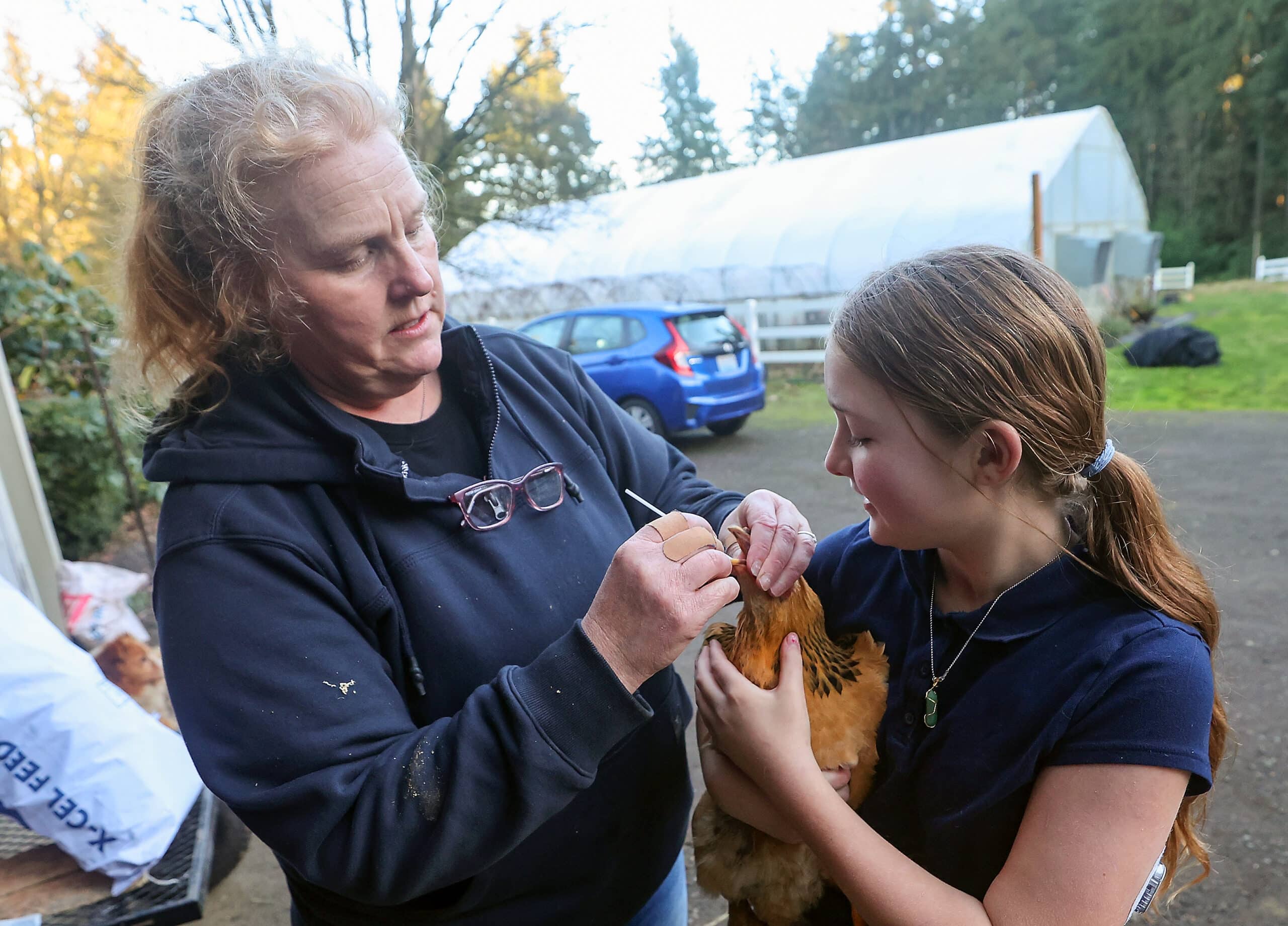
Broox Daniel, with help from her daughter Athena, demonstrates how to swab the throat of a chicken to test for avian flu at their EB Daniel Farm in Olalla on Jan. 8, 2025. Photo by Meegan M. Reid/Kitsap Sun
Poultry farmers at risk
Seven backyard flocks in Pierce County have contracted the disease since the outbreak began, as have another three in Kitsap County.
Bird flu, which is spread by aquatic birds like ducks and geese, is a huge risk for poultry farmers. If even one bird becomes infected, the farmer must euthanize the entire flock and dispose of their eggs.
The Washington state Department of Agriculture advises bird owners to enhance biosecurity measures following the outbreak. Proper cleaning, covering coops and feeding birds inside have become important to limiting interactions with wild birds and preventing the spread of disease.
Proximity to water sources or ponds, where waterfowl congregate, increases the risk of transmission to domestic flocks, said Washington State Veterinarian Dr. Amber Itle. Risk is also generally higher in the fall, when wild birds migrate.
“It is important to remember that migrating waterfowl that harbor influenza viruses often do not look or get sick,” Itle said in a statement. But “when those viruses spillover into domestic poultry, they can be deadly.”
The state confirmed the presence of bird flu in May 2022. Since then, the disease has been identified in 53 flocks of varying sizes across 19 counties, according to data from the U.S. Department of Agriculture. It has impacted more than 1.85 million birds.
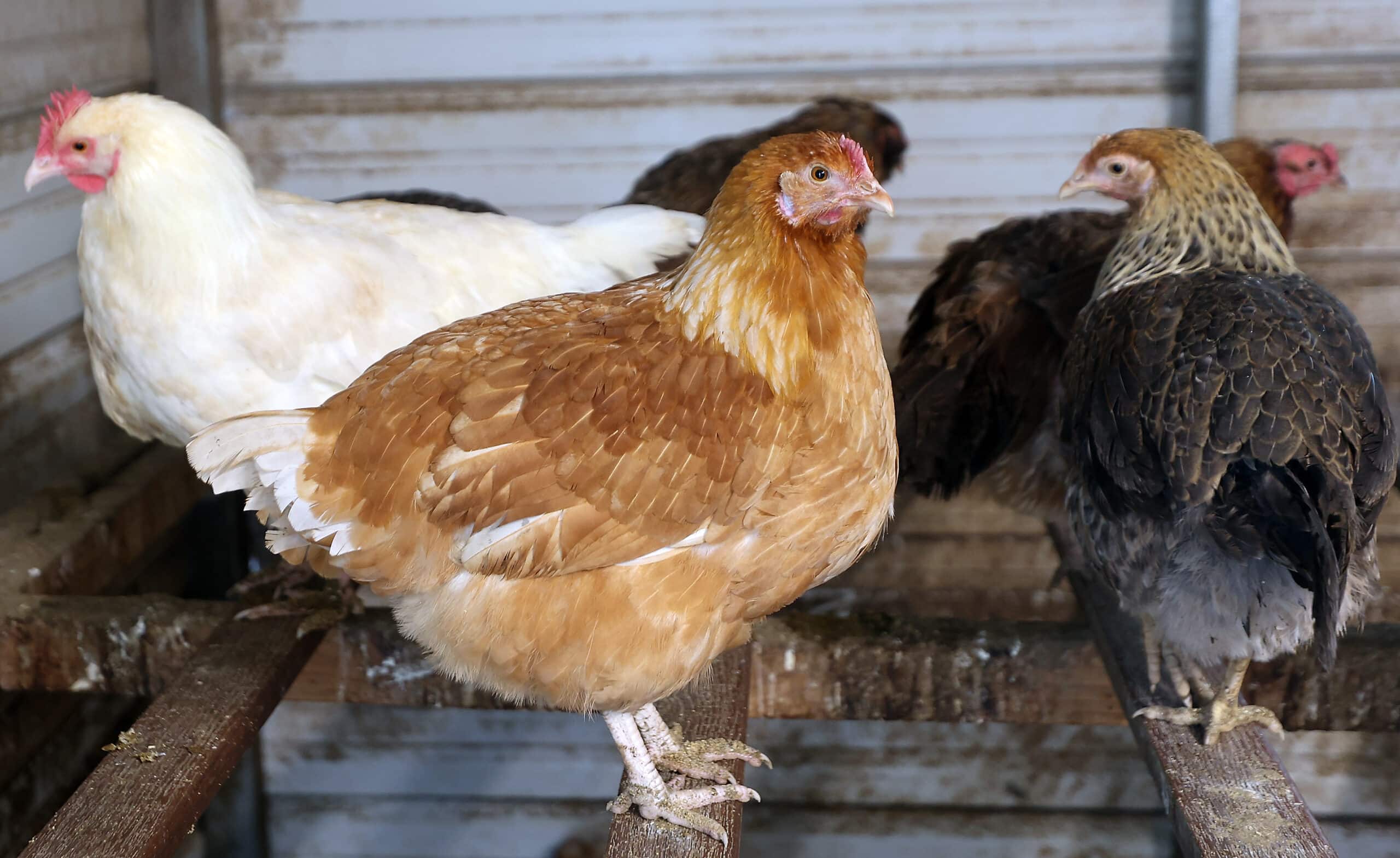
Hens perch on roosts in their enclosure at EB Daniel Farm in Olalla on Jan. 8. Photo by Meegan M. Reid/Kitsap Sun
No bird flu in Washington cows so far
There were seven confirmed cases in 2024. All but one was from small or medium-sized backyard flocks, including one in South Kitsap.
Washington’s only commercial outbreak last year happened in October at a Franklin County farm. State officials euthanized all birds on the premises, according to WSDA.
No cases among cows, another concern nationally, have been found so far in Washington. But the disease has infected wildlife. Biologists with the Washington Department of Fish and Wildlife reported an uptick in probable cases of the disease among wildlife last month.
Scientists have confirmed cases in seals, cougars and raccoons and a variety of bird species. A wildlife sanctuary on Harstine Island in Mason County that houses cougars, tigers and other big cats made national headlines last month after 20 animals died following bird flu infections.
Thus far there has been no indication that the disease is circulating between wild mammals like it does among birds. Mammals likely contract it through eating infected birds.
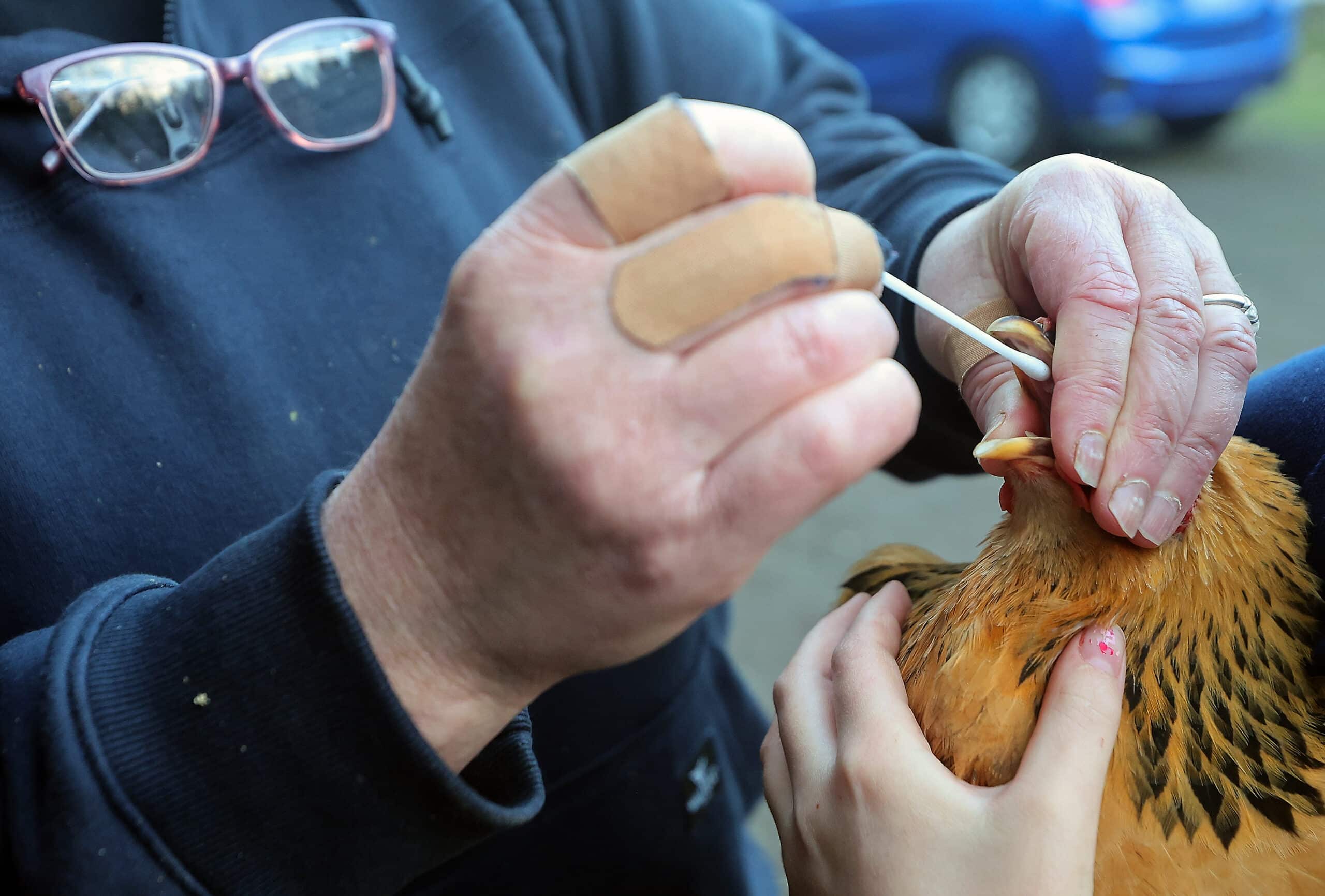
Broox Daniel swabs a chicken to test for avian flu at EB Daniel Farm in Olalla on Jan. 8. Photo by Meegan M. Reid/Kitsap Sun
“The probable route of infection for these animals was through ingestion,” Dr. Gig Morrow, Kitsap’s top public health official, said of the Mason County outbreak during a meeting this month. Raw and unpasteurized milk remain a risk for infection, he said, as do raw meats.
What pet owners should do
Veterinarians advise pet owners to avoid giving their animals raw food or milk and keep them away from potentially infected wildlife. A house cat in Oregon died last month after eating raw food contaminated by bird flu.
Bird flu infections are rare among humans. Most cases happen to people on poultry farms who have prolonged and close contact with infected animals. The risk to the public is low, according to the Centers for Disease Control, which reports no human-to-human transmission.
As of November, the state health department had identified 11 confirmed and three probable human cases of bird flu in Washington. All of those cases came from poultry.
Nationally, one person has died following a bird flu infection. The 65-year-old man from Louisiana was in contact with a backyard flock and had underlying medical conditions, according to the New York Times.
In Olalla, Daniel has thus far avoided bird flu on her farm. But she did have a scare a few months ago.
Local farms react to bird flu
In October, learned that a small nearby flock in South Kitsap had tested positive. WSDA did not report the exact location of the infection, but Daniel said it appeared to be about a “mile away as the crow flies.”
Her farm immediately paused egg sales. Daniel rounded up her hens, placing them inside their coop. She swabbed about 60 of her birds, sending the samples to a state lab in Puyallup.
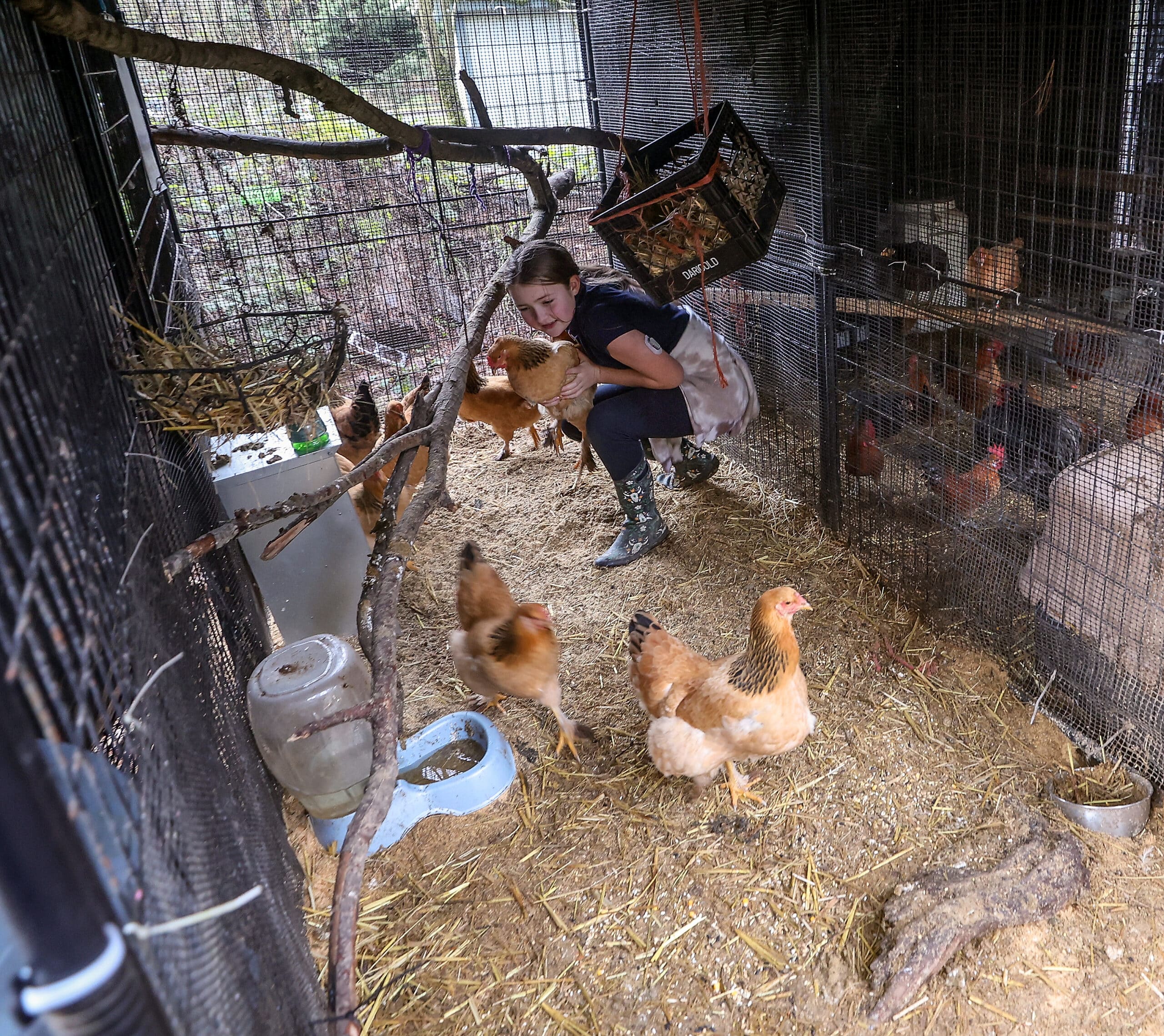
Athena Daniel, 10, grabs her brahma chicken named Flash at her family’s EB Daniel Farm in Olalla on Jan. 8. Photo by Meegan M. Reid/Kitsap Sun
Keeping hens indoors can help reduce their chance of contracting bird flu. It prevents interactions with a wild birds who may carry the disease. Logistically though, housing hundreds of birds is a challenge, Daniel said. Plus it is not ideal for their health.
Spending all day in their coop stresses birds out and prevents them from foraging the ground for bugs, she said. Her customers “depend on” their birds “being free range.”
After a two-week lockdown, Daniel let them roam again. Her birds spread their wings and rejoiced at the freedom.
“When we let them out they were like little pterodactyls,” she said.
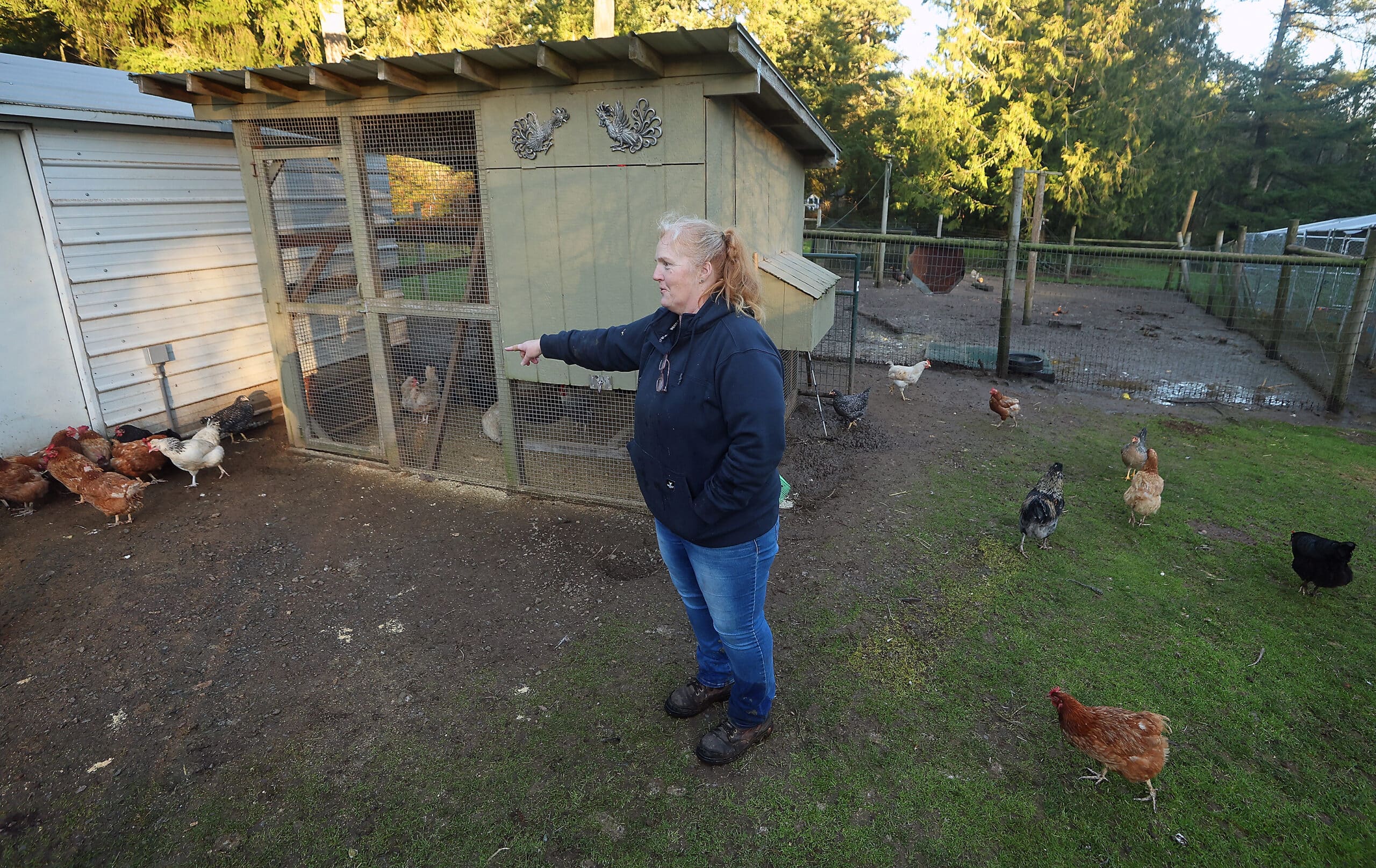
Broox Daniel talks about the various housing structures for her chicken flock at EB Daniel Farm in Olalla on Wednesday Jan. 8, 2025.

